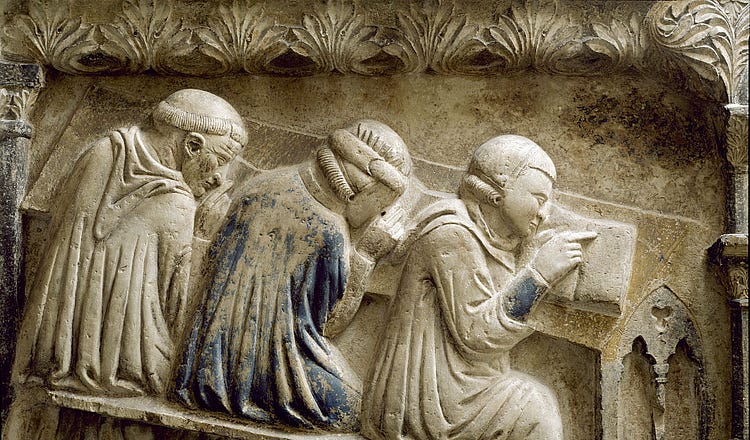Don’t Burn Down the Ivory Towers

Slab from the tomb of Bonifacio Galluzzi, a university lecturer at Bologna, c. 1346. (Photo by Leemage/Corbis via Getty Images)
The pursuit of knowledge and truth is more important than ever—which is why we must fight to save our universities.
142
The following remarks were delivered by 2023 Jeane Kirkpatrick Prize winner Joshua Katz at Encounter Books’ Twenty-fifth Anniversary Gala in Washington, D.C., last month.
When you qualify a noun with an adjective, you often change its meaning significantly. All of us believe in justice, I’m sure, but social justice is another matter.
Then there’s freedom.…
Continue Reading The Free Press
To support our journalism, and unlock all of our investigative stories and provocative commentary about the world as it actually is, subscribe below.
$8.33/month
Billed as $100 yearly
$10/month
Billed as $10 monthly
Already have an account?
Sign In

